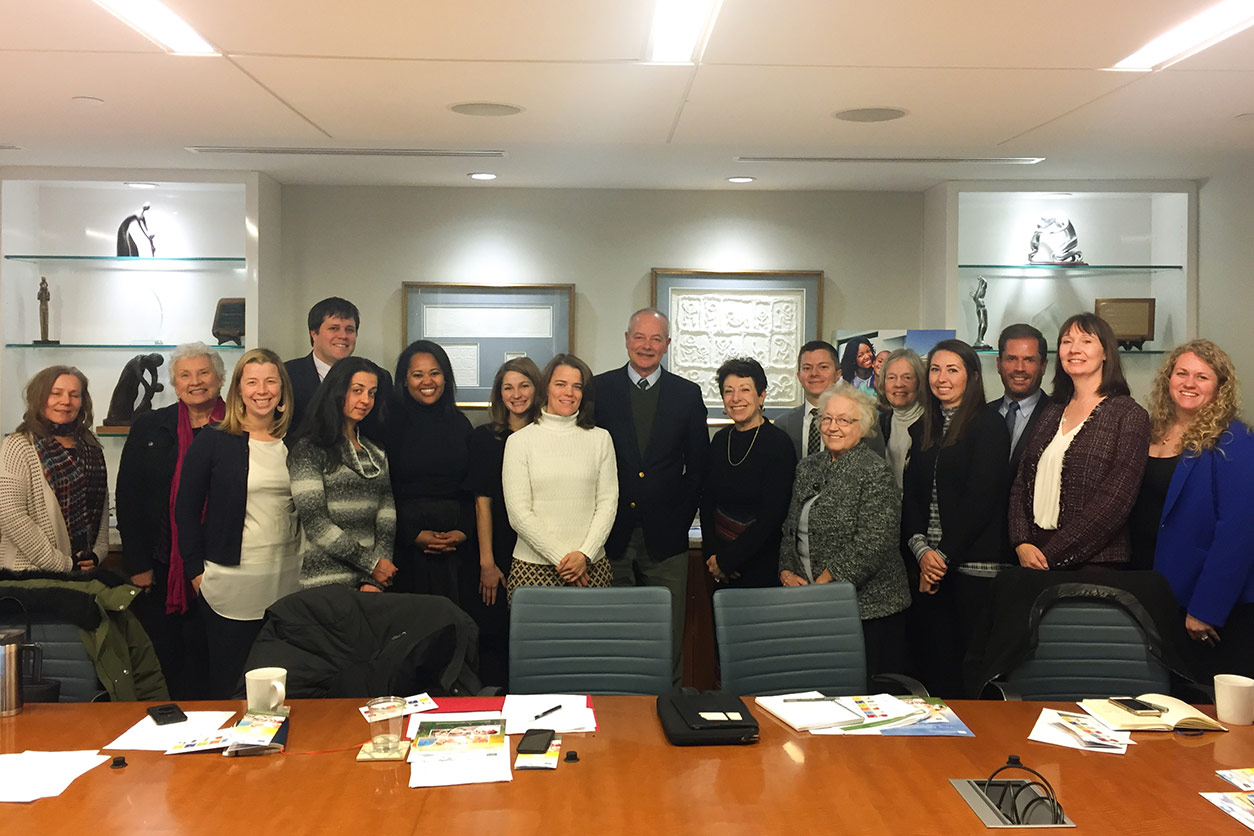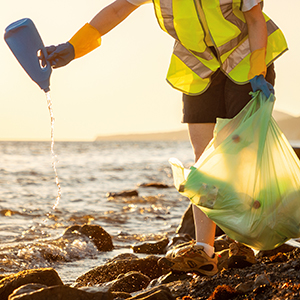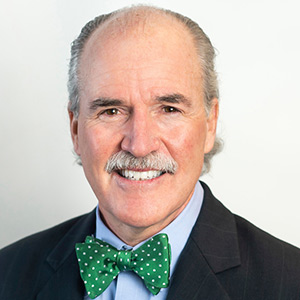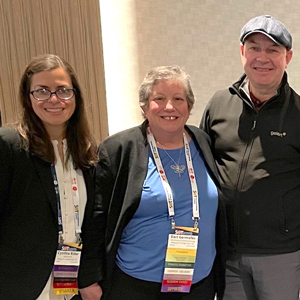The Friends of NIEHS (FNIEHS) gathered Jan. 15 to meet with NIEHS and National Toxicology Program (NTP) Director Linda Birnbaum, Ph.D. Representatives of the nonprofit organizations that make up FNIEHS (see sidebar) received updates on the latest environmental health research projects in the lab and clinic, hot topics on exposures of concern, the institute’s new strategic plan, community forums held in the past year, and other institute activities.
The annual meeting was held at the offices of the American Academy of Pediatrics (AAP) in Washington, D.C. Birnbaum enjoys the yearly meetings, at which she hears from the representatives about the environmental health concerns that are foremost in the minds of their members.
FNIEHS shares information on environmental health with members of Congress and their staff. In 2018, the group co-sponsored two congressional briefings, one on neurological diseases and the environment and another on children’s health.
Besides Birnbaum, NIEHS was represented at the January meeting by Jed Bullock, legislative liaison, and April Bennett, program manager.
 Participants, from left: Kolian, Makris, Abbott, Christiansen, Meyer, Webster, Bunge, Alexander, Dirks, Birnbaum, Laakso, Ladd, Gant, Riemenschneider, Rutta, Moore, and Bennett. Not shown: Gadhia and Barnett. (Photo courtesy of Jed Bullock)
Participants, from left: Kolian, Makris, Abbott, Christiansen, Meyer, Webster, Bunge, Alexander, Dirks, Birnbaum, Laakso, Ladd, Gant, Riemenschneider, Rutta, Moore, and Bennett. Not shown: Gadhia and Barnett. (Photo courtesy of Jed Bullock)Research collaborations and BPA
After her presentation, Birnbaum held an open question and answer time with meeting attendees. NIEHS collaboration with other institutes and centers in the National Institutes of Health (NIH) — and other agencies as well — was a topic of interest.
The CLARITY-BPA project, which is a collaboration between NTP, NIEHS and its grantees, and the U.S. Food and Drug Administration, sparked several questions. BPA is the acronym for bisphenol A.
“Do you think the CLARITY-BPA model is one that can be translated to other chemicals or other [molecular or disease] pathways?” asked FNIEHS co-chair Joe Laakso, Ph.D., from the Endocrine Society. Birnbaum affirmed the value of that approach, but noted that its cost — $36 million — means it cannot be used for every chemical that needs to be studied.
Virginia Ladd, president of American Autoimmune Related Diseases Association (AARDA), asked about health effects from exposures to cash register receipts or thermal paper. She mentioned interest in California around banning such paper receipts, which may contain BPA.
Birnbaum replied with data from a 2015 NIEHS clinical study that sampled cashiers before and after their work shifts. The authors reported significant post-shift increases in urinary BPA in approximately 40 percent of the cashiers. In another 40 percent, the chemical apparently used in the paper was bisphenol-S, a BPA substitute that has been nominated for study by NTP.
Another 20 percent of the cashiers had measurable amounts of a substitute known as BPSIP, which was previously unknown to be used in register receipts. Birnbaum explained the notion of unfortunate substitution, in which a chemical of concern is replaced by substances whose risk to health is unknown or potentially worse.
Health effects of climate change
Birnbaum also responded to a question about research on the health effects of climate change, which was posed by Tracy Kolian of the Children’s Environmental Health Network.
Birnbaum affirmed that NIEHS continues to study how human health is affected by food insecurity, the changing range of organisms such as ticks and mosquitoes that transmit disease, and extreme weather events and variability.
More information on such health effects is available in the November 2018 Fourth National Climate Assessment and the NIEHS webpages on climate and health.
Citation: Thayer KA, Taylor KW, Garantziotis S, Schurman SH, Kissling GE, Hunt D, Herbert B, Church R, Jankowich R, Churchwell MI, Scheri RC, Birnbaum LS, Bucher JR. 2015. Bisphenol A, bisphenol S, and 4-hydroxyphenyl 4-isopro oxyphenyl sulfone (BPSIP) in urine and blood of cashiers. Environ Health Perspect 124(4):437−444.









